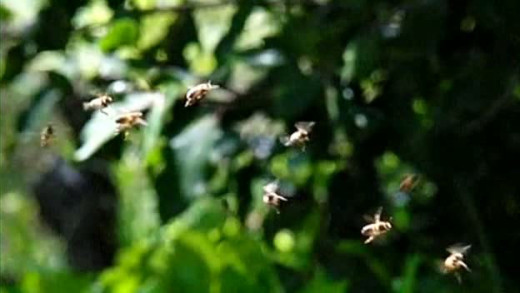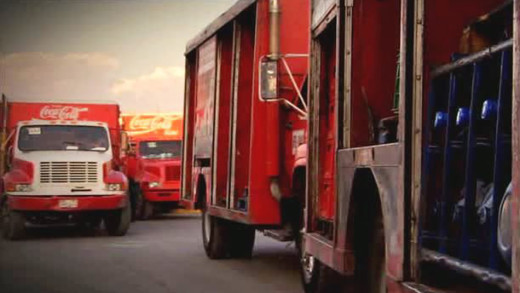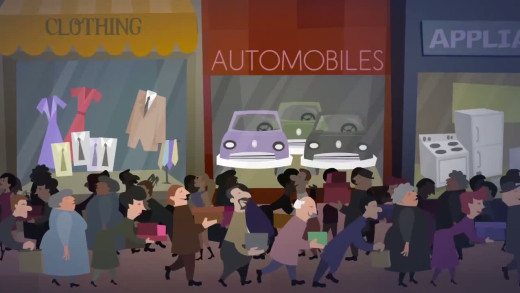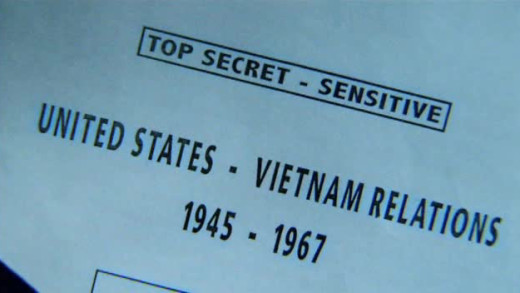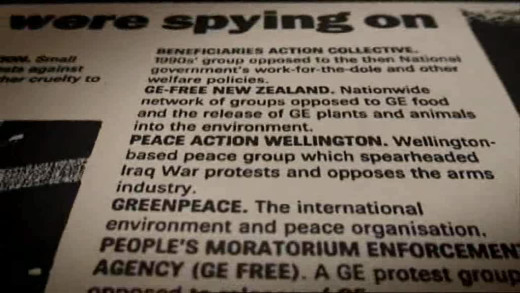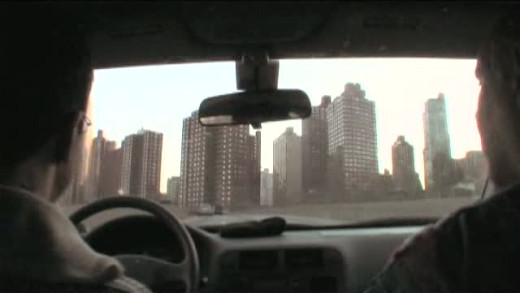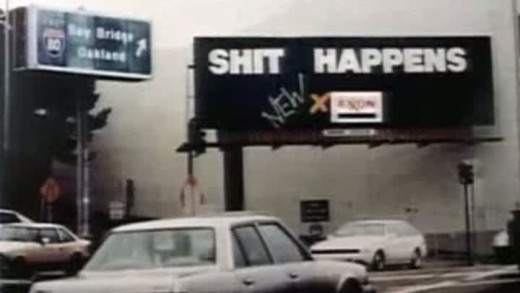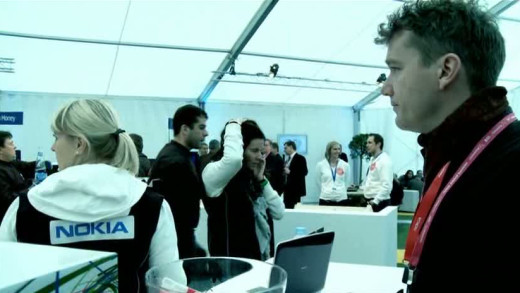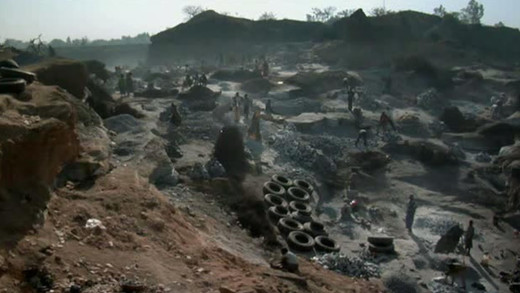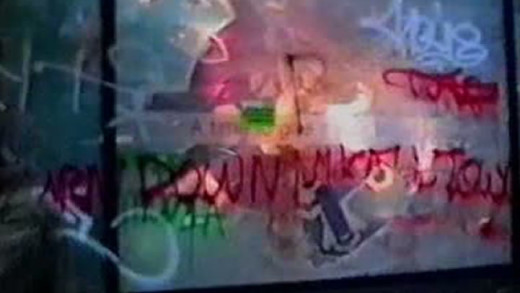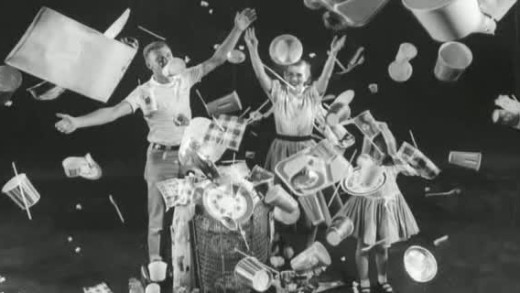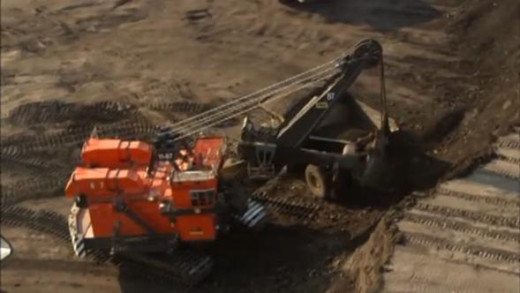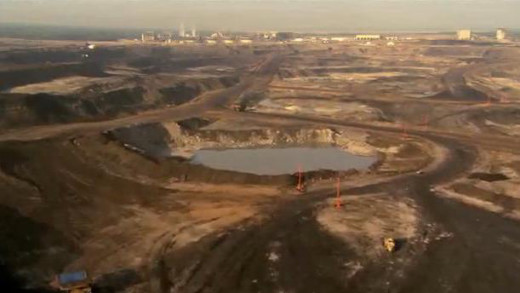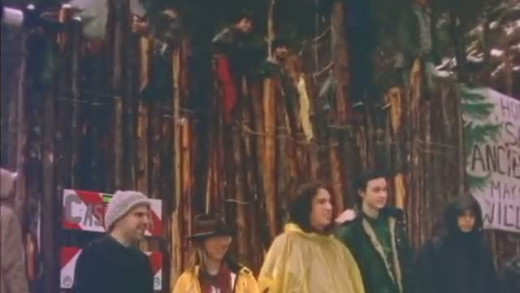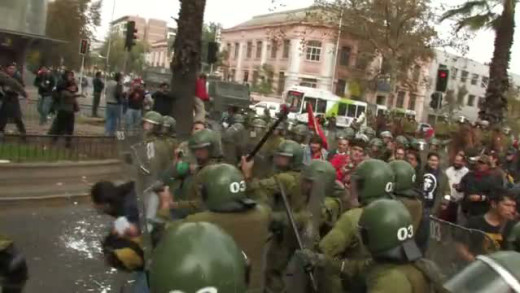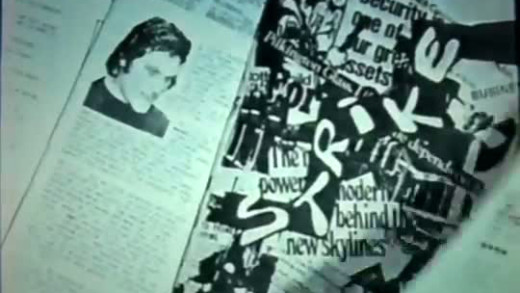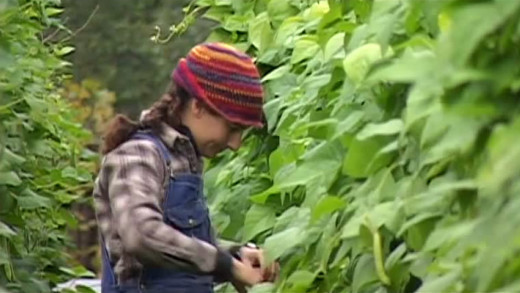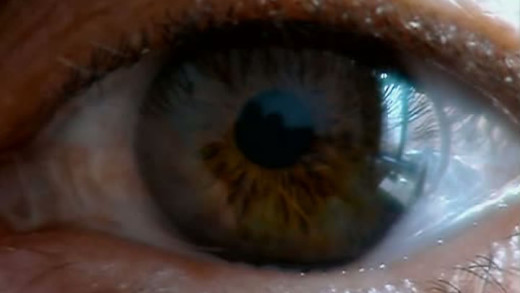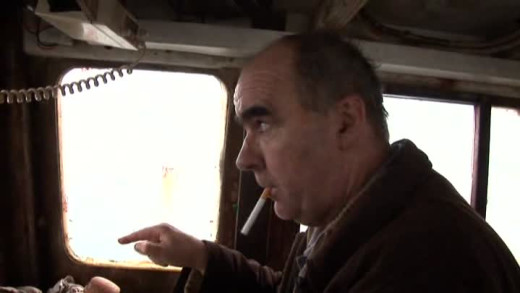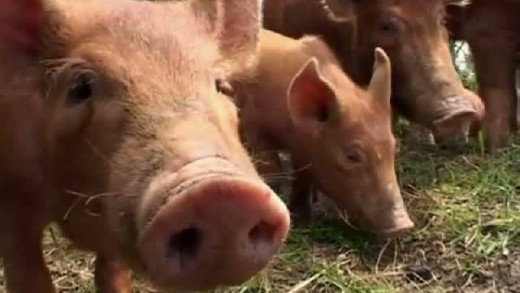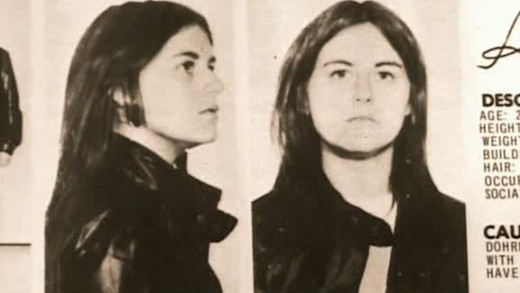Bees have been mysteriously disappearing, literally vanishing from their hives. Known as 'Colony Collapse', the phenomenon has brought the commercial food industry to crisis. Commercial honeybee operations pollinate monocrops that make up one out of every three bites of food in the western world. Vanishing Of The Bees follows beekeepers David Hackenberg and Dave Mendes as they strive to keep their bees healthy and fulfil pollination contracts across the United States; examining the alarming disappearance of honeybees and the greater meaning it holds about the relationship between industrial culture and ecology...
Coca Cola is one of the most visible brands in the world, but there's one part of the operations the corporation doesn't want you to see. Colombia is the trade-union-murder-capital of the world. Since 2002, more than 470 workers' leaders have been brutally killed, usually by paramilitaries hired by private companies intent on crushing the unions. Amongst the top unscrupulous corporate brands is Coca Cola...
Combining graphs and other visual examples in animation, this short film goes through the issues surrounding the collapse of industrial civilisation--by collating the interconnectedness of energy depletion, carrying capacity, population growth, peak natural resource extraction, and other issues with the problems of exponential economic growth on a finite planet. Can this current way of life continue? The film takes us through these problems and also examines some of the many flaws inherent in some proposed solutions, such as 'change-by-personal-consumer-choice', or the vague belief in technology as the deus ex machina to save the day. These serious problems need serious solutions and require a radical rethinking of this current way of life that cannot continue indefinitely. Time is short...
In 1971, Daniel Ellsberg shook the United States to its foundations when he leaked top-secret Pentagon documents to the New York Times that showed how five Presidents consistently lied about the Vietnam War. Consequently, National Security Advisor Henry Kissinger called Ellsberg "the most dangerous man in America," who "had to be stopped at all costs." But Ellsberg wasn't stopped. Facing 115 years in prison on espionage and conspiracy charges, he fought back...
On October 15th 2007, a series of intense police raids occurred around the small village of Ruatoki in New Zealand. Operation 8, as it was called, was the result of 18 months of invasive surveillance of Maori sovereignty and peace activists accused of attending 'terrorist training camps' in the Urewera ranges—the homeland of the indigenous Tūhoe people. This film examines why and how the raids took place. Did the "War on Terror" become a global witch-hunt of political dissenters reaching even to the South Pacific?
Following up from The End Of Suburbia, this film examines the rich interplay on the subtle relationships between the energy crisis, neighbourhood gardens and the collapse of the 'American dream'. Escape From Suburbia outlines potential solutions with interviews from individuals across the world who are brave enough to challenge their communities toward change...
In 2003, on the eve of the Iraq war, director Iara Lee embarks on a journey to better understand a world increasingly embroiled in conflict. Several years later, after travelling to five continents, Lee encounters growing numbers of people who have committed their lives to change. From Iran to Burma to Palestine and Lebanon, Cultures Of Resistance explores how art and creativity can mould with the greater culture of resistance, a part of the battle for peace and justice...
Culture Jam
Culture Jam documents a movement against advertising and the repurposing of commercial messages by following pranksters and subversive artists as they hijack, subvert and reclaim corporate media space in the battle of public 'mind-share' dominated by the consumer culture. Stopping in San Francisco, New York's Times Square and other parts of the United States, Culture Jam documents some jamming in action—armed with everything from DIY anti-ad stickers, custom neon, to the art of performance and guerilla film screenings—to illustrate just some of what people can do to push back against the saturation of commercial media messages in public space.
Modern society loves mobile phones -- the selection between different models and gadgets has never been bigger. But the production of this technology has a hidden, dark, bloody side. The main minerals used to produce mobile phones are coming from the mines in the Eastern DR Congo. The Western World is buying these minerals up at a furious rate, financing a bloody civil war which, during the last 15 years, has cost the lives of more than 5 million people. Blood In The Mobile explains the connections between mobile phones and the civil war in the Congo, while technology corporations whitewash the issue to "supply and demand" and claim ignorance...
Let's Make Money investigates the development of the world-wide financial system, showing that elitists economically exploit the rest of society, especially in the developing world, but also in western nations. Using the savings of a typical depositor as a case study, the film moves around the global system, showing exploitation at many levels. There are several interviews with investment managers, politicians, economists as well as homeless people and workers who give their take on the system and its impacts...
Interspersed with shots of direct-action and interviews with participants, Big Rattle In Seattle documents the protests in Seattle against the World Trade Organisation conference in September 1999.
From styrofoam cups to artificial organs, plastic is perhaps the most ubiquitous and versatile material ever invented -- no product in the past 100 years has had more a profound influence and presence than synthetics. But such 'progress' has a cost -- no ecosystem or segment of human activity has escaped the strangling grasp of plastic. Addicted To Plastic investigates what we really know--and don't know--about this material. Talking to manufacturers, recyclers, cleaners, scientists and others, Addicted To Plastic shows plastic's toxic legacy and devastating ecological impact, provoking serious questions about health, food and the environment...
Dirty Oil
Dirty Oil looks into the strip-mined regions of Alberta, Canada, where the vast and toxic Tar Sands currently supply the United States with the majority of its oil. Through the eyes of corporate officials, politicians, scientists, doctors, environmentalists and communities directly impacted by the largest industrial project on the planet today, Dirty Oil travels to both sides of Canada to document the irreversible toll the tar sands take, further fuelled by the western world's addiction to oil...
Tapped shows the hidden affects of the bottled water industry by documenting the impacts to the environment from plastic bottles, pollution from production, right down to the impact on the communities, land and people from which the water is taken...
A World Without Water investigates the future of the world's water supply as it currently stands and travels to Bolivia to show just one example in many of the privatisation of the water supply and the turning over of water to corporations such as Coca Cola...
Flow—For The Love Of Water builds a case against the growing privatisation of the world's dwindling fresh water supply with a specific focus on human rights, pollution, the politic of corporate influence in the emergence of a domineering global water cartel. The film names and clearly documents many of the culprits, while asking the question—can anyone really 'own' water?
h2Oil
Canada is now the biggest supplier of oil to the United States, thanks to the Alberta tar sands—a controversial billion-dollar project to extract crude oil from bitumen sands, using a very toxic process that has generated international cause for concern. Four barrels of glacier-fed spring water are used to process each barrel of oil, along with vast amounts of electricity. The waste water is dumped, filled with carcinogens and other chemicals, into leaky tailings ponds so huge that the piles can be seen from space. Downstream, people and communities are already paying the price with contaminated water supplies and clusters of rare cancers. Evidence mounts for industry and government cover-ups. In a time when wars are fought over dwindling oil and a crisis looms over access to fresh water, which will we allow to turn out to be more precious to us?
An eclectic group of activists take a stand to protect an old growth forest from logging at Warner Creek in the Willamette National Forest of Oregon. The activists block the logging road, repel State Police and intervene to stop timber sales. Over months a community builds around the blockade and similar actions spread across the region. Filmed by the activists themselves, PickAxe is the account of the direct actions from the perspective of the participants to save Warner Creek...
The Chicago Conspiracy reviews the legacy of the military dictatorship in Chile by sharing the story of combatant youth who were killed by the Pinochet regime as a backdrop to the history of the military dictatorship and current social conflict. The larger history is wrapped around three shorter pieces, which explore the student movement, the history of neighbourhoods that became centres of armed resistance against the dictatorship, and the story of the indigenous Mapuche...
Between 1970 and 1972, a group of activists used weapons to symbolically attack property, sparked by demonstrations in London against the Vietnam War. Calling themselves the Angry Brigade, the group published a series of communiqués with the actions, explaining the choice of targets and the philosophy. Targets included the embassies of repressive regimes, police stations, army barracks, boutiques, factories, government departments and the homes of Cabinet ministers, the Attorney General and the Commissioner of the Metropolitan Police. The attacks on senior authority figures increased the desire for 'results' and consequently brought an avalanche of police raids. But from the start the police were faced with the difficulty of getting to grips with the section of society they found to be totally alien -- were they facing an organisation, or an idea?
While corporations and governments continue to disseminate globalisation and the rapacious drive for consolidation of corporate power, people around the world are pushing back to reinstate local communities. Groups are coming together to rebuild human scale, local and ecological economies based on a new paradigm of localisation and sustainability. The Economics Of Happiness documents these shifts and shows how these communities have reclaimed their autonomy...
The Future Of Biometrics takes a look at current day technologies that interface with the human body for surveillance, identification, tracking and analysis. Using fingerprints, retina scans, gate analysis and other more intrinsic physical or behavioural traits, biometric technologies provoke a range of pertinent questions around social control, privacy and mass surveillance, especially that these technologies are in use, today...
The Pipe tells the story of the people in Rossport, Ireland which have taken on the might of Shell Oil building a pipeline through their community. But when these people look to the government to protect their rights, they find that the government protects Shell instead. The question then becomes: what do people do, when the law prevents them from protecting themselves?
We Are Traffic
We Are Traffic chronicles the history and development of the "Critical Mass" bicycle movement -- one of the most dynamic social political movements of the apathetic 90s. In over 200 cities in 14 different countries, Critical Mass has now become a monthly ritual of reclaiming the streets by bicycle activists riding en masse...
Pig Business investigates the rise of factory farming, a system which abuses animals, pollutes the environment, threatens human health through dangerous overuse of antibiotics and destroys rural communities. The film shows how this system which was developed in the United States and is now being used in eastern Europe from where the pork, often produced below legal animal welfare standards, is exported to other EU countries putting local farmers out of business...
A Little Bit of So Much Truth captures a broad-based popular uprising in the southern Mexican state of Oaxaca in 2006 where tens of thousands of school teachers, housewives, indigenous communities, health workers, farmers and students took 14 radio stations and one TV station into their own hands—using them to organise, mobilise, and defend the fight for social, cultural, and economic justice.
In the 1960s and 70s, the polarisation of the political situation in the United States was becoming acute with the Vietnam War abroad and civil rights at home being but the most obvious issues. For the youth political movement, the futile methods of peaceful protest led to the rise of an idealistic faction that undertook a more extreme approach to resistance. This faction, called the Weather Underground, attempted to team up with the Black Panthers to overthrow the US government—starting with street riots, escalating to bombing government targets. Thorough archival footage and interviews of the veterans of both sides, this film covers the movement, until changing times and disillusionment brought it to an end, alongside the FBI employing an illegal series of projects called COINTELPRO to hasten it...
The Revolution Will Not Be Televised documents first-hand the events in Venezuela leading up to and during the April 2002 coup d'état attempt which briefly deposed President Hugo Chávez. A television crew from Ireland's national broadcaster, RTÉ happened to be recording a documentary about Chávez during the events. Shifting focus, the crew followed events as they occurred and captured images that they say contradict explanations given by Chávez's opposition, the private media, the US State Department, and then White House Press Secretary Ari Fleischer. The Revolution Will Not Be Televised details how the coup was the result of a conspiracy between various old guard and anti-Chávez factions within Venezuela and the United States...
